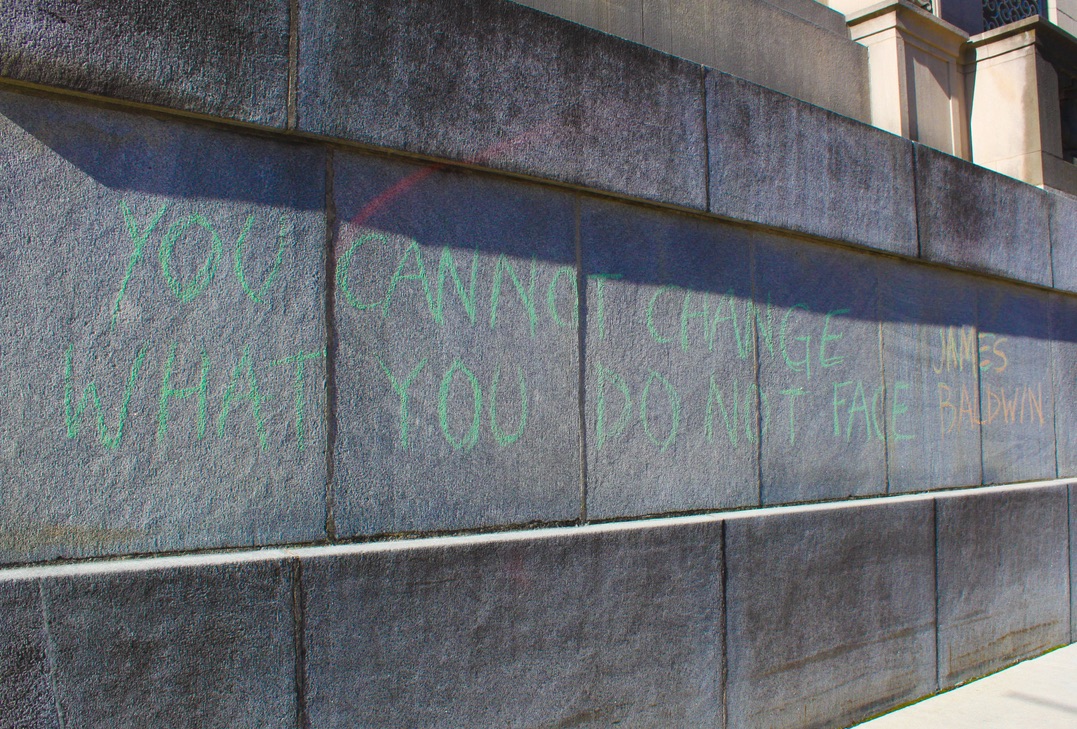Evidence and Eloquence
On the essays of James Baldwin.

Indianapolis, June 2, 2020.
Evidence and Eloquence
On the essays of James Baldwin.
It can be a little too easy to pin labels on James Baldwin: black, gay, expatriate, aesthete. But every label sells him short, diminishing the singularity of his work. That he wrote specifically of his time and place—America in the middle of the twentieth century—and engaged its most dangerous themes—race, Civil Rights, the persisting degradations of history—does not limit the reach of his sentences into the past and the future: They are, and will remain, acute inquiries into the moral and political quandaries of our being, regardless of the age in which they’re read. While the books are indeed indelible documents of their era, they ponder questions of inheritance, race, and social justice with a sense of perplexity and purpose that resonates far beyond their contemporary context, and that makes them especially timely today.
His essays especially are provocative exercises for the reader. The volumes that first gathered them—Notes of a Native Son, Nobody Knows My Name, The Fire Next Time, No Name in the Street—made his reputation as a refulgent if often recalcitrant prophet of the Civil Rights era, landing him on the cover of Time magazine and keeping him in the public eye. In every paragraph, Baldwin’s language reaches forward and back in time with a tragic sense of continuity and consequence. His deep well of evolving private memory enriches his—and our—perspective on current events. His writing is as challenging as it is rewarding exactly because his probing of complex realities realizes that their complexity emanates from contradictions at their cores. Truths, he’d learned, were never singular, and seldom in agreement; yet he remained unrelenting in his pursuit of them. This commitment to capturing the contradictions of lived experience imbued his explorations with an equivocal ferocity that revealed both the naïveté and the arrogance of others’ certainties. If America, as he wrote in Notes of a Native Son, is a “country devoted to the death of the paradox,” Baldwin realized that such devotion was a kind of suicide.
Baldwin’s essays move with restlessness and agility and, now as then, they offer his readers not solace but a kind of education in sorrow, teaching us that morality is far more fatal, and perhaps more unforgiving, than our sentimental narratives of reconciliation and redemption allow us to believe. And more personal as well: Baldwin knew that the subject of race in America was also the story of him in America, and his essays make of his insights and bewilderments a tortured light. As he writes in No Name in the Street, “the moral of the story (and the hope of the world) lies in what one demands, not of others, but of oneself.”
❦
Excerpted from the book, 1,000 Books to Read Before You Die by James Mustich. Copyright © 2018 by James Mustich. Published by Workman Publishing.
